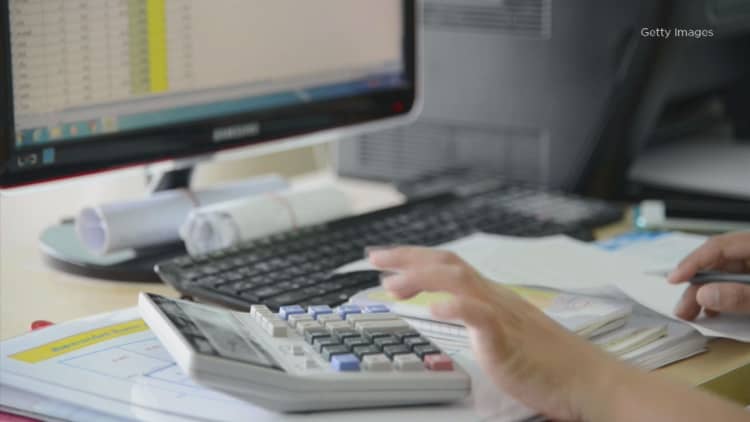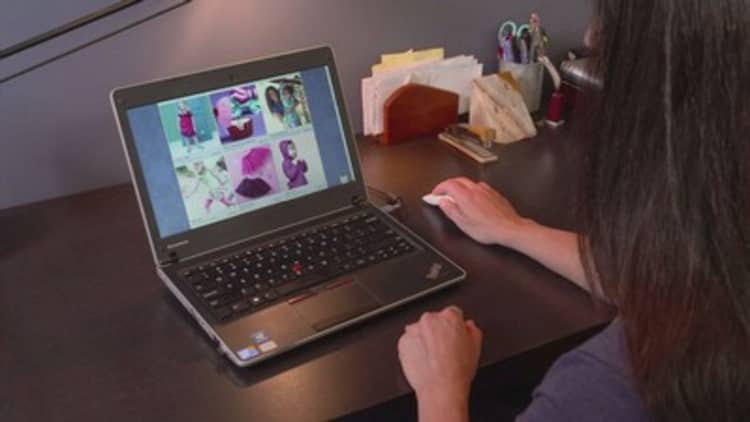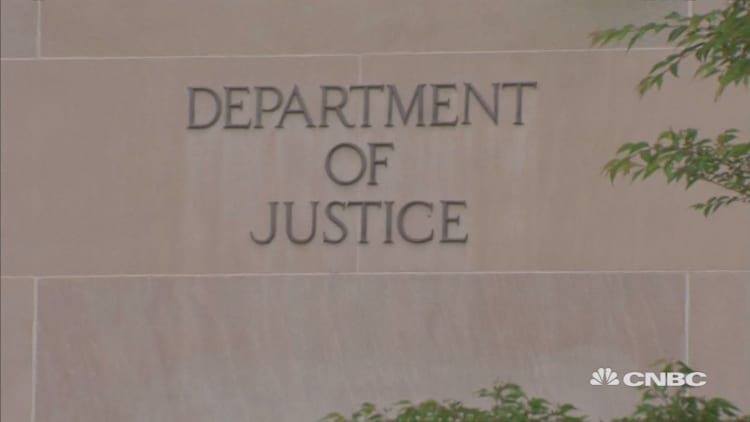The Securities and Exchange Commission today unveiled new charges against five unregistered brokers in connection with a $1.2 billion Ponzi scheme that came to light late last year.
The five individuals and their companies sold more than $243 million in unregistered securities to more than 1,600 individual investors, according to the SEC.
The individuals allegedly promoted the firm's "safe and secure" investments at seminars, a Florida university class, in newspaper ads and on the radio.
The problem: The brokers were not allowed to sell securities and were not registered as broker-dealers, the regulator said.
That did not stop them from picking up millions of dollars in unlawful commissions, the SEC said.
The investors have yet to have their principal returned and are not receiving monthly interest payments, since the firm these professionals worked for filed for bankruptcy.
In a Ponzi scheme, the perpetrator generally takes money from one set of investors to pay off others, often earlier investors, or simply diverts the proceeds for private gain.
The case is a cautionary tale.
"The frightening truth about fraud is scammers scam and liars lie," said Gerri Walsh, senior vice president of investor education at the Financial Industry Regulatory Authority, which regulates brokerage firms.
Here are the precautions you should take to protect yourself from become a victim, according to the regulators whose job it is to catch these scams.

Do a background check
Before you begin working with financial professionals, check their registration records to verify that they are, in fact, licensed and have not had any egregious complaints lodged against them.
Options include BrokerCheck, which is provided by FINRA; Investment Adviser Public Disclosure from the SEC; or your state securities administrator.
If the financial professional does not show up in a search, you should think twice about working with him or her, said Lori Schock, director of the SEC's Office of Investor Education and Advocacy.
If someone offers you a guaranteed high rate of return, they're lying. You're probably looking at a fraud.Owen DonleySecurities and Exchange Commission
"Most of the retail-facing fraud that we see is committed by those who are not registered," Schock said. "It is unlicensed people selling unregistered products."
You should also look at records periodically to check up on a financial professional.
"If you have been working with the person for a while ... go ahead and take a peek and see what you see," FINRA's Walsh said.
Not all disclosures that show up on a professional's or firm's record are a red flag, said Walsh. But they should be a conversation starter.
Know what you are investing in
You should be wary of investments that are overly complicated.
"If a retail investor can't understand the investment, they ought not pursue that opportunity," said Owen Donley, chief counsel at the Office of Investor Education and Advocacy at the SEC.
All the information about the investment, such as through filings made with the SEC, should be readily available. If a financial professional won't make investment paperwork available, that's a "huge red flag," Donley said.

Find out how they get paid
Be sure to ask a number of questions, including "How do I pay you?" and "How do you get paid?" Walsh said.
The answers could include commissions or fees, but there might be some other method for payment, such as a sales contest or a proprietary product particular to that firm.
Use that information to assess whether the firm is a fit for your risk and liquidity needs, Walsh said.
Check your statements
Monthly statements should show any transactions you made, including the amount.
"Especially in down markets, it can be depressing to look at your statements," Walsh said. "But you have to do it. You have to keep tabs."
If you see something you did not authorize, you should call your broker and send a written complaint to the firm. You should also notify the appropriate securities regulator.
Investors should also do periodic checks of securities they own to see that the prices match up with what appears on their statements, Walsh suggested.

Be wary of high-pressure sales tactics
If a promise sounds too good to be true, chances are it is. That particularly goes for offers that require you to act immediately or success rates that are too good.
"If someone offers you a guaranteed high rate of return, they're lying," said Donley. "You're probably looking at a fraud."
Sales pitches that lead you to believe that the offer is only available for a limited time or restricted to a special group of people should also be a red flag.
And watch for any information that comes with free offers, such as educational seminars that provide lunch or mail offers that include trinkets. Those will make you more likely to respond.
"You have a tendency to believe this person and trust this person," Walsh said. "The one thing we always say about free meals is you don't have to bite on what's being offered."
Hold on to your money until you are sure
If you have any doubt about an investment, check into it before you put your money in.
"The criminals spend the money, so even when we nail them, the money's often gone," said Donley.
More from Personal Finance:
Account fees can doom your retirement savings. Here's how to avoid them.
What you don't know – but should – about how your financial advisor gets paid
Watch out for this red flag when paying your financial advisor


